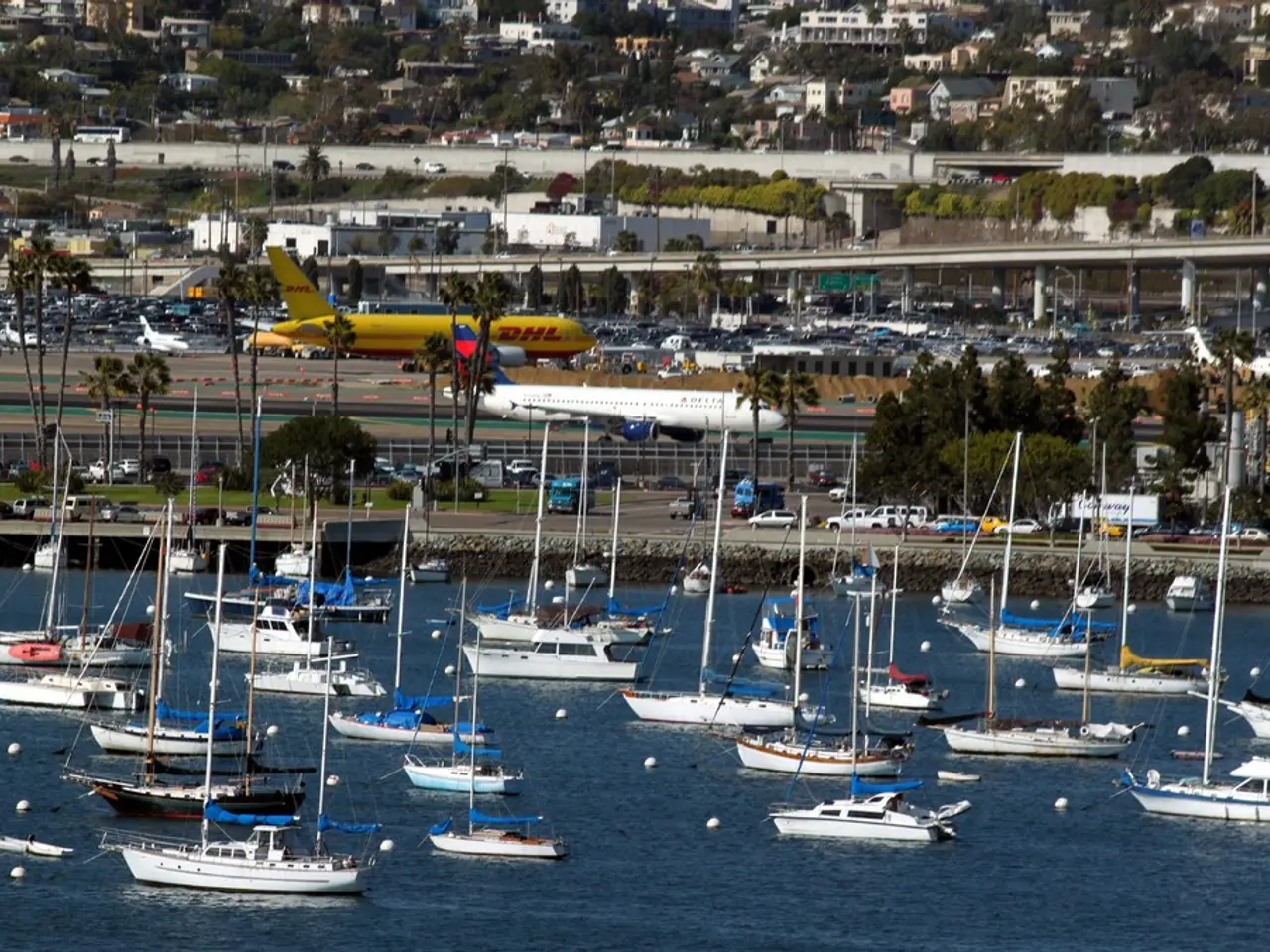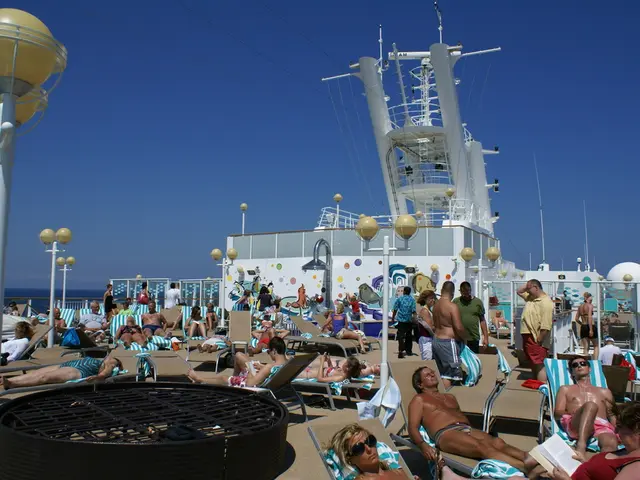Politicians from both Republican and Democratic parties are urging President Trump to maintain the security agreement with Australia and the United Kingdom.
Headline: U.S. Industrial Infrastructure Faces Challenges in Meeting AUKUS Submarine Production Targets
Australia has pledged to increase defence spending to support its first nuclear-powered submarine program and provide maintenance facilities for the U.S. Indo-Pacific fleet based in Western Australia. This commitment comes as part of the AUKUS partnership, a trilateral agreement between Australia, the United States, and the United Kingdom.
The partnership involves the U.S. selling three to five Virginia-class nuclear-powered submarines to Australia, with the first delivery scheduled as soon as 2032. However, the current status of the U.S. industrial infrastructure's shipbuilding capabilities regarding the AUKUS partnership and nuclear-powered submarine production is challenging and under intense scrutiny.
The planned delivery rate is approximately 2.2 to 2.3 submarines per year, requiring a transformational improvement in shipbuilding output. Adm. Daryl Caudle, nominated as Chief of Naval Operations, has stressed that doubling current production is essential to meet these demands.
The U.S. industrial base must double its submarine production capacity to meet obligations under the AUKUS agreement. This review highlights concerns about a "hollowed-out industrial base" that has limited U.S. capability to build warships at an adequate pace. Senior officials and lawmakers emphasize the importance of the AUKUS pact for Indo-Pacific strategic deterrence but acknowledge that without revitalizing U.S. industrial production, fulfilling the partnership's submarine production goals could be very difficult.
The Defense Department is reviewing the AUKUS pact and examining these industrial challenges, with the review expected to conclude in fall 2025. Meanwhile, Australia and the UK are moving forward with their respective undersea capabilities developments despite U.S. industrial challenges.
Republican lawmakers, who have pushed back against the Trump administration on defense policy, are being tested with the Pentagon's review of AUKUS. Defense policy support for AUKUS is strong and bipartisan, particularly on the Armed Services Committee. Congressional appropriations totaling $10 billion since 2018 have been allocated to support the U.S. submarine industry for sales to Australia.
The U.S., along with the U.K., would help Australia design and build another three to five attack submarines to form an eight-boat force for Australia. Bruce Jones, a senior fellow, stated that positioning subs in Western Australia arms the undersea space for American deterrence.
The Australian ambassador to the United States, Kevin Rudd, expressed confidence that the two governments will work through any issues with the partnership. Jennifer Parker, a former Royal Australian Navy member, suggested that the partnership should not be viewed as a zero-sum game, as it benefits both countries in terms of access and theater of choice.
The AUKUS partnership is considered crucial to American deterrence and defense options in the Western Pacific. Sen. Tim Kaine, D-Va., expressed confidence in the partnership and expressed hope that the Pentagon's review will support AUKUS. The U.S. Navy may face a shortage of attack submarines for two decades if it sells the vessels to Australia, according to a March report by the Congressional Research Service.
In summary, while the U.S. remains committed to the AUKUS partnership and nuclear-submarine supply, its industrial infrastructure currently faces capacity limitations and requires significant expansion and modernization to meet production targets within the pact's framework.
Read also:
- Trump's proposed congressional district map in Texas faces continuing obstacles, with Governor Gavin Newsom imploring President Trump to relinquish his plans
- Critique on Gender Issues: Deniz Yücel draws a parallel between Minister of Culture and former East Germany's chief ideologist Kurt Hager
- Chinese Ambassador issues stern message to India regarding Trump's tariffs in midst of escalating trade feuds
- Aircraft collides with another one on the runway during landing at Montana airport, igniting flames








